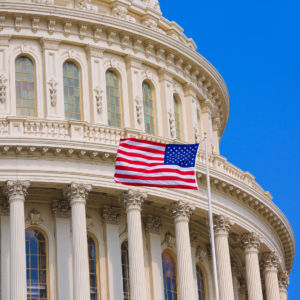Editor’s Note: For an alternative viewpoint, please see: Counterpoint: Democracy Is Broken
Writing democracy’s obituary has a history about as long as democracy’s own lifespan. Its death notice has frequented this year’s campaign trail in particular; perhaps due to the metastasizing of media in our everyday, it seems increasingly to be published at each stage of the election cycle.
And while the autopsy reports vary somewhat in their stated causes of death, for the 2016 presidential election the political examiner’s diagnosis includes some now familiar maladies: legislative gridlock or stagnation, hyper-partisan divides, and the capture of the halls of government by privileged special interests, whose fistfuls of dollars effectively mute the political voice of the average American Joe or Julia.
Under such circumstances, the report goes, the American political system doesn’t or can’t respond to the will of the people. Democracy simply flatlines.
At best, this diagnosis is inexact. Democracy isn’t dead — it’s quite alive, and its reactionary kicking against aspects of our modern administrative state explains a great deal about current levels of gridlock and partisanship. Particularly since the 1970s, the executive branch (the president, his political appointees and the hundreds of agencies that report to them) has actively pursued making law outside of the traditional congressional channels and through administrative rulemaking, resulting in the thousands of regulations that govern what we can buy, eat and wear, when and how companies can make goods, and how organizations can conduct business.
Since the financial crisis of 2008 and amid national security concerns post 9/11, this regulatory activity has picked up such a frenzied pace that government often finds itself in its own way. The Obama administration in particular has reacted to administrative delay by issuing declarations, known as executive actions, over and above the heads of the executive agencies and Congress, about large and contentious areas of policy such as immigration, health care, the environment and, most recently, restrooms.
Over the past several election cycles, the direction of the average citizen’s daily life has thus shifted with minimal input from him- or herself, either positively or negatively. But the underlying legislative delay — congressional gridlock — ought to be more accurately understood as the expression of a people who have not reached a consensus over immigration and other such important social policy issues.
What governing by executive fiat fails to account for is that the partisanship in Congress it decries as malicious or lazy is rather a reflection of the absence of a particular national will. Absent a broad consensus, it’s unlikely that legislative decisions will be made — or should be: That is the messy inefficiency of a democracy in which the Constitution separates powers and demands more than simple majorities to legitimate such important policy decisions.
“Partisanship” at the citizen level has further implications at the congressional level. In the past, the formal party system functioned as the vehicle of the consent of the people, reflecting and refining the varied interests and concerns of different populations, localities and states into a communicable legislative platform.
Partly on account of Progressive-era reforms to make the political parties more popular and democratic, and partly on account of more recent federal regulations levied against their organizational capacity, neither the Republican nor Democratic parties today can exhibit much ability for moderating between their members’ divergent interests and maintaining a unified legislative identity.
For one, rather than state legislatures or party operatives deciding in the fabled smoke-filled rooms which candidates will run for public office, candidates themselves now announce their intentions and make a run for it — very democratically.
Also weakening party structure in favor of the democratic impulse is the lack of internal discipline the state parties can exert. State parties are among the highest regulated entities in American politics, especially in regards to the source and size of donations. Because federal regulations severely limit parties in what direct assistance they provide their candidates, parties have missing teeth for holding candidates accountable. Lacking incentive, candidates-turned-legislators have fewer reasons to coordinate with their fellow legislator, let alone their party.
Compounding the parties’ problem is the rise of Super PACS — which are themselves expressive of the popular impulse to have a particular set of interests or a favorite candidate heard, as well as of Americans’ knack for “disruptive innovation.”
Americans would rather have their politics unalloyed, not mixed with the judgments of party pros or sullied by messy legislative bargaining. Political life can’t be that simple in an American polity that is large, complex and rests on divided power. Nor ought it to be under our constitutionally mandated system of representative government, where legislators by definition must reflect the interests of their particular constituents and moderate them toward the common good.
Democracy isn’t dead. But as both the administrative state and its democratic reaction reveal, perhaps representative democracy is what’s at risk.

